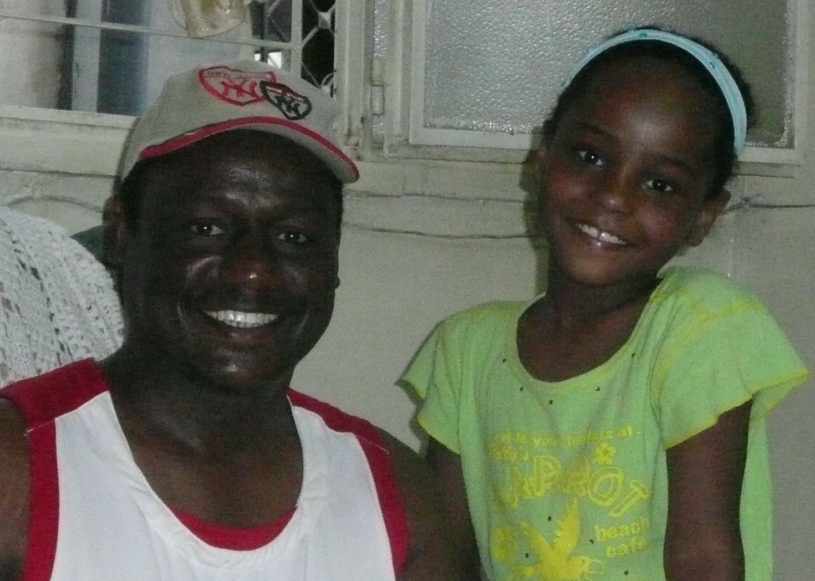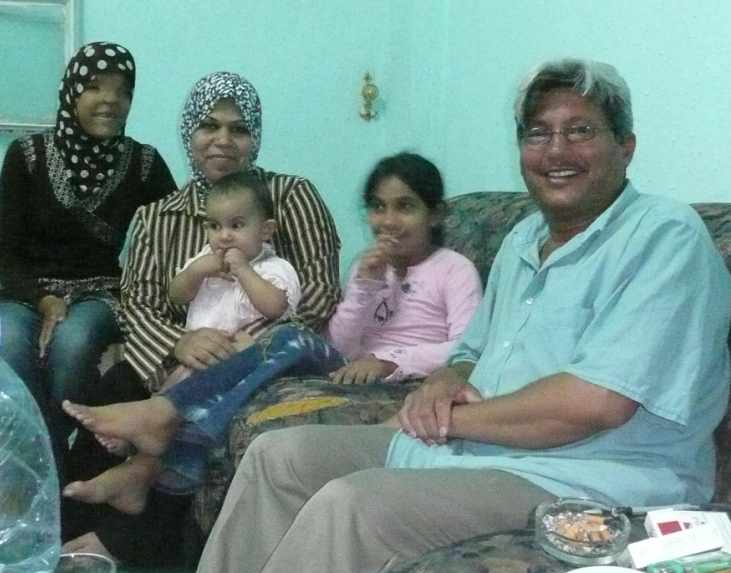| Interviewing Iraqi men (refugees) |
| Aug
27
Today I began my "official" task with Collateral Repair Project (CRP): interviewing Iraqi men (asylum seekers now living in Jordan) in order to present their stories to potential American donors. I interviewed two men, in both cases with their families present. And both families have been the recipients of "micro projects" from CRP--see http://www.collateralrepairproject.org (This isn't a fund-raising blog, but you might consider donating; every buck you spend there is put to effective use, sans bureaucracy) Why did I interview just the men? Because Sasha and Mary, the co-directors of CRP, have discovered that men in this culture are often not as open as they might be when talking to foreign women. The hope is that in relating to another man they will tell their full story--the emotional elements as well as the factual. |
| Fakher
Abed and family
|
| I
met first with Fakher, here with daughter Shukran. In our two-hour
session he spun a long tale of threats and attacks from Sunni militia directed at
him as a Shia. He was shot at, had his home burned, fled to
another city for a year to protect his family, watched as fellow Iraqi
workers at an American base were shot by the militias, was told by the Sunni
“you are a nigger, and you must leave the area, or we will kill
you.”
Fakher, like all Iraqi refugees in Jordan, cannot legally work in the Jordanian economy. If they do work, and get caught, they may be imprisoned and sent back to Iraq--a move they profoundly fear. |
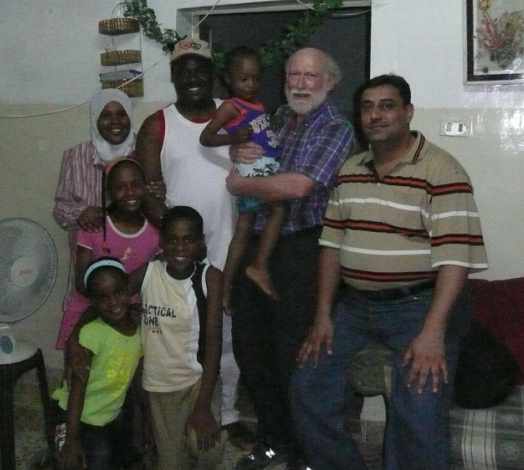 |
| The
family, with Ghzwan and me
|
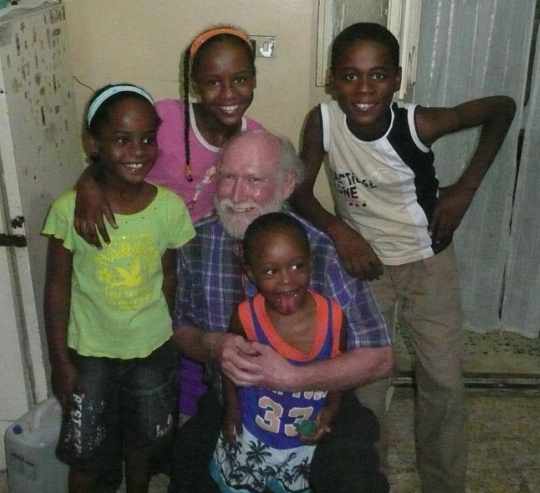 |
| None
of these kids is in school. They've missed a whole year now, after
going to a special school run by "Rescue the Child" for one
year (the funding ran out)
|
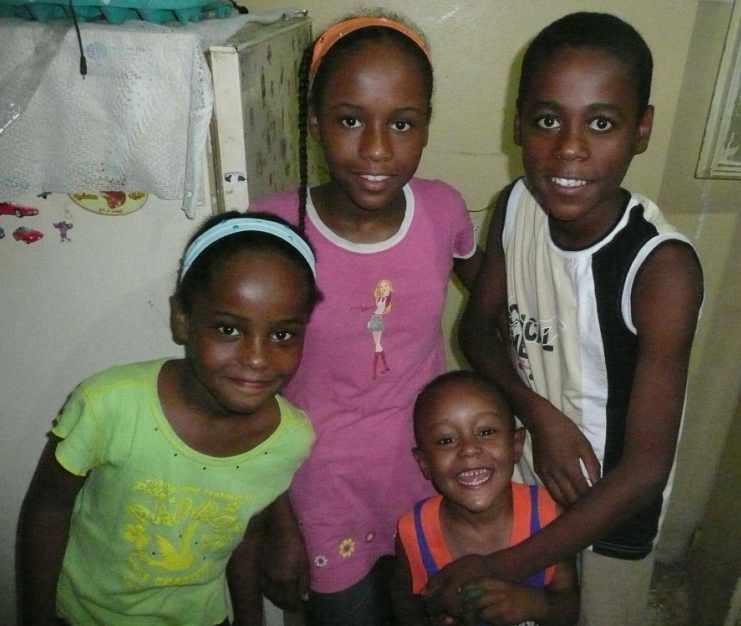 |
| Shukran
Halaa
Sayf
Mohsen
No comment needed. I luuuv this photo. |
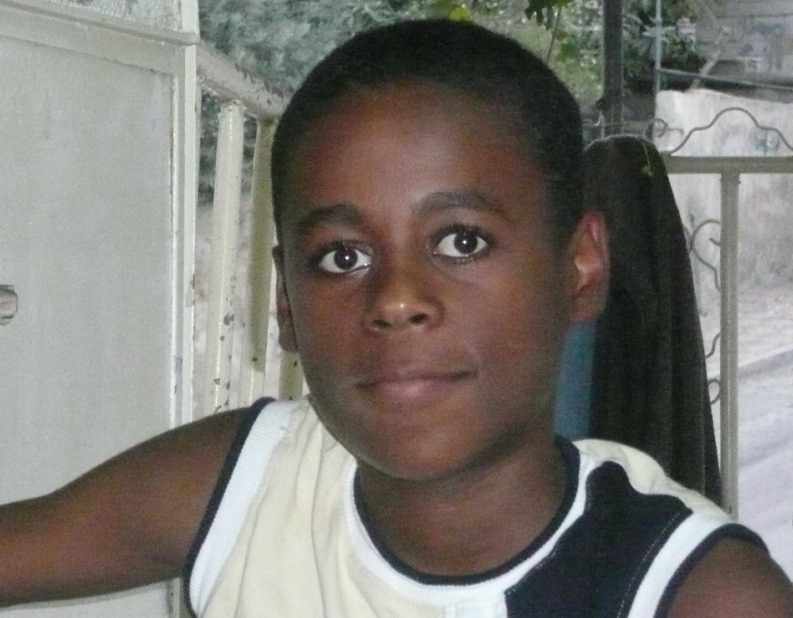 |
| Isn't
it intolerable that a bright-eyed kid like Mohsen should have no assured
secure and stable future?
No money for school fees now, no prospect at all of college, can't legally work, can't go back to Iraq, U.S. won't allow him in. Grim |
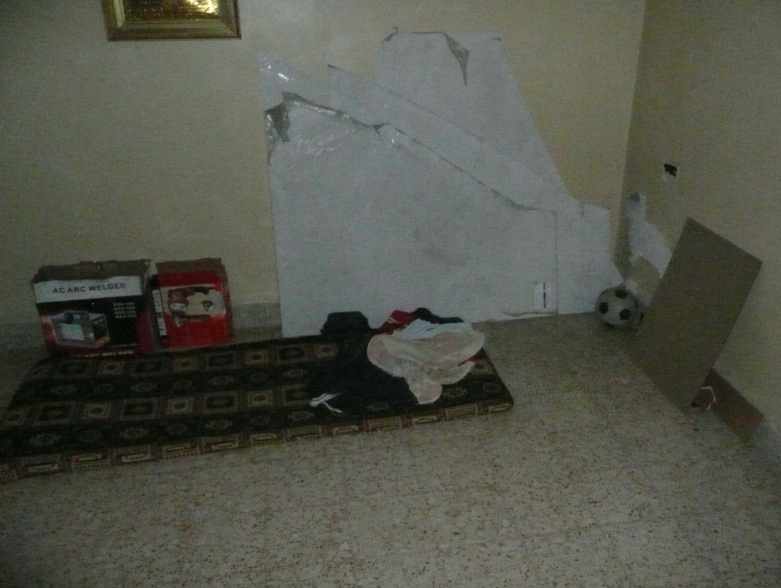 |
| The modest sleeping quarters |
 |
| In
spite of having a tough time making ends meet, and an uncertain future,
the pride in their home was evident even in the sparse surroundings of
the kitchen
And they invited Ghzwan and me to return for dinner in a few days. I was somewhat reluctant to accept, given their household's economy, but Ghzwan assures me of the appropriateness of bringing a gift of cash. |
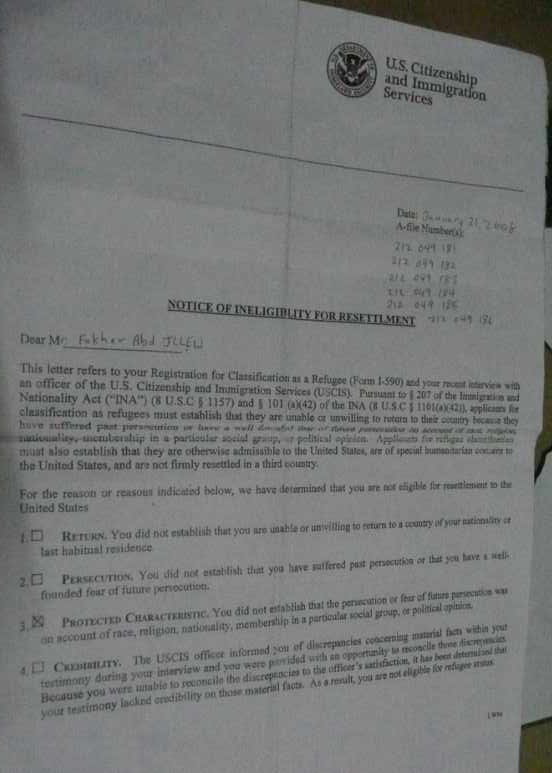 |
| As
you can see in this Notice of Ineligibility for Resettlement, Fakher was
turned down. Item 3 was checked; it reads "Protected
Characteristic: You did not establish that the persecution or fear
of future persecution was on account of race, religion, nationality,
membership in a particular social group, or political opinions."
Given his account of fear, threats, attacks, and intimidation, you have to ask, My god, what does it take? |
| Khaled
Al-Badery and family
|
| During
our interview I asked Khaled what the future looked like for him.
His one-word answer: Darkness
He's unable to work, his children are not in school, his daughter was born with an incredibly disfigured face and in need of $42,000 more surgery. So why are they all smiling (as were Fakher and family)? The indomitable human spirit, I guess. These refugees face challenges that are totally foreign--both in scope and in quality--to most of us comfortable Americans. Hanan Tana, the mother, received a beauty salon setup in a micro project from CRP. This enables her to earn a modest amount of money, taking both Iraqi and Jordanian women. |
| Since the first gulf war in 1991 I have known of the horrendous damage and misery caused by the use of uranium munitions (Depleted Uranium, to use the popular term). But to see it first hand is another matter. Believe me. |
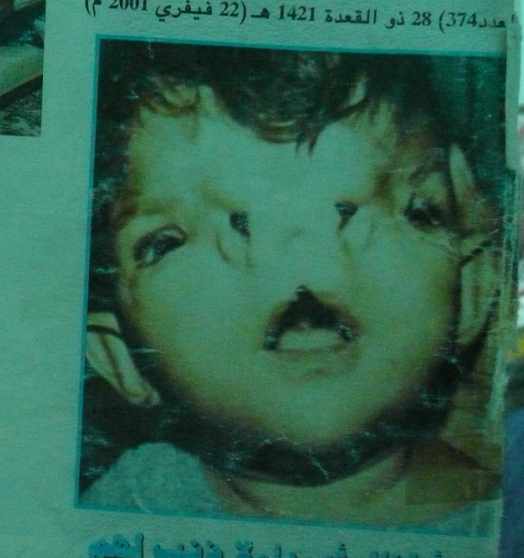 |
| This
is how Eyman started out in life
|
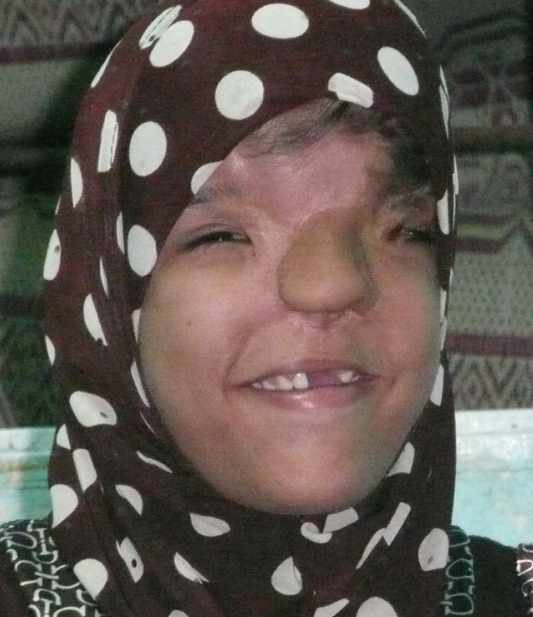 |
| After
two trips to America for surgery, this is her present condition.
She stays all day in the home, has no friends, is shunned by fellow
teenagers because of her face, and needs three more operations of
$14,000 each
But she has a wonderful spirit, and is a lovely human being. Eyman was born in Basra, Iraq, just after the first gulf war. (Remember the slaughter of fleeing Iraqi troops by American planes?) Basra was, according to Robert Fisk of The Independent, "drenched in depleted uranium dust", and has had soaring rates of birth defects, leukemia, and cancers. Check out his account here: |
|
|
